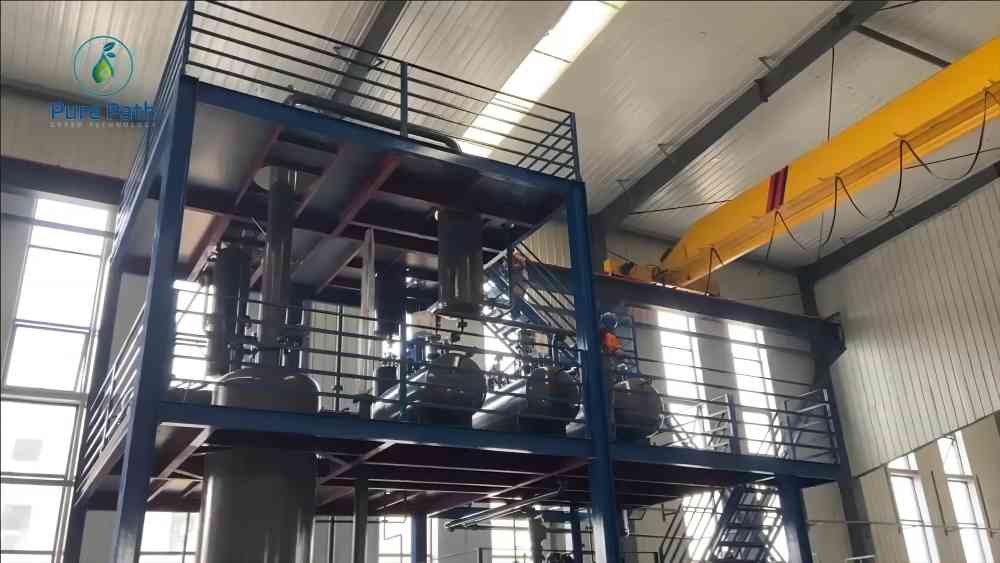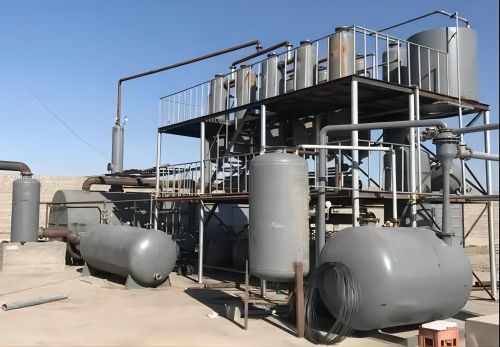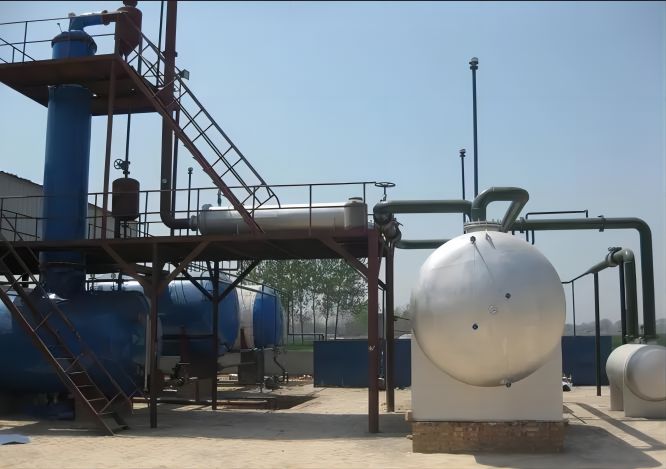Waste Oil to Diesel Machines: A Promising New Technology with Environmental Benefits
In an era where environmental concerns are paramount, the world is constantly seeking innovative solutions to manage waste and reduce carbon footprints. Waste oil, often considered an environmental hazard, is a resource that can be transformed into something valuable. This transformation is made possible through the use of Waste Oil to Diesel Machines, an advanced technology that not only mitigates environmental issues but also yields a valuable product. In this article, we will explore what a waste oil to diesel machine is, its emissions compared to conventional diesel engines, the different types available, and the myriad benefits it offers.

What is Waste Oil to Diesel Machine?
A waste oil to diesel machine is a device that converts used motor oil into diesel fuel. It is a relatively new technology, but it has the potential to be a major breakthrough in the renewable energy sector.
Used oil is a major environmental problem. It is estimated that over 26 billion gallons of used oil are generated each year worldwide. Most of this used oil is either disposed of improperly, or it is burned, which releases harmful pollutants into the atmosphere.
Waste oil to diesel machines offers a solution to this problem. They convert waste engine oil into a clean-burning fuel that can be used in diesel engines. This reduces the need for petroleum-based diesel fuel, and it also helps to reduce the environmental impact of used oil disposal.
Emissions from a Diesel Engine Running on Fuel Produced by a Used Oil to Diesel Machine
The emissions from a diesel engine running on fuel produced by a used oil to diesel machine are generally lower than the emissions from a diesel engine running on petroleum-based diesel fuel. This is because waste oil to diesel machines removes many of the impurities from the used oil, such as heavy metals and sulfur.
However, it is important to note that the emissions from a diesel engine running on waste oil to diesel fuel can vary depending on the type of used oil being used, the quality of the waste oil to diesel machine, and the maintenance of the diesel engine.
Studies have shown that waste oil to diesel fuel can produce lower emissions of carbon monoxide, particulate matter, and nitrogen oxides than petroleum-based diesel fuel. However, waste oil to diesel fuel can also produce higher emissions of hydrocarbons and aldehydes.
Overall, the emissions from a diesel engine running on waste oil to diesel fuel are generally lower than the emissions from a diesel engine running on petroleum-based diesel fuel. However, it is important to properly maintain the waste oil to diesel machines and the diesel engine to minimize emissions.

What are the Different Types of Used Oil to Diesel Machines?
Used oil to diesel machines come in various configurations, each tailored to specific applications and scales of operation. The most common types include:
- Batch machines: These machines process used oil in batches. They are typically smaller and less expensive than continuous flow machines, but they are also slower and less productive.
- Continuous flow machines: These machines process used oil continuously. They are typically faster and more productive than batch machines, but they are also more expensive.
- Mobile machines: These machines are designed to be portable and can be used to process used oil on-site. They are typically smaller and less expensive than stationary machines, but they are also less productive.
- Stationary machines: These machines are designed to be used in a permanent location. They are typically larger and more expensive than mobile machines, but they are also more productive.
Benefits of Using a Used Oil to Diesel Machine
The adoption of waste oil to diesel machines offers a multitude of benefits:
- Reduced environmental impact: Waste oil to diesel machines helps to reduce the environmental impact of used oil disposal. They also help to reduce the need for petroleum-based diesel fuel, which is a major contributor to climate change.
- Reduced fuel costs: Waste oil to diesel machines can help businesses reduce their fuel costs by producing their own diesel fuel. This can be especially beneficial for businesses that use a lot of diesel fuel, such as trucking companies and construction companies.
- Improved energy security: Waste oil to diesel machines can help businesses improve their energy security by reducing their reliance on imported petroleum. This can be especially beneficial for businesses in countries that do not have their own oil reserves.
- Job creation: Waste oil to diesel machines can create jobs in the manufacturing, installation, and operation of these machines. They can also create jobs in the collection and transportation of used oil.

Summary
Waste oil to diesel machines represents a significant stride towards sustainable waste management and energy production. These machines not only offer a solution to the growing problem of used oil disposal but also contribute to a cleaner, more sustainable future. Through their refined processes and reduction in harmful emissions, they stand as a beacon of hope in the fight against environmental degradation. Embracing this technology not only makes economic sense but also aligns with a collective responsibility to safeguard our planet for generations to come.







